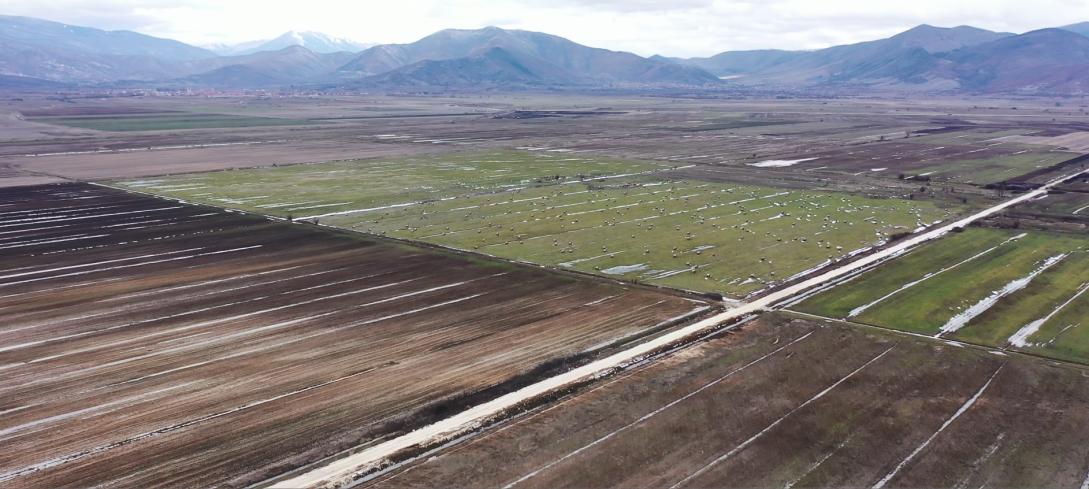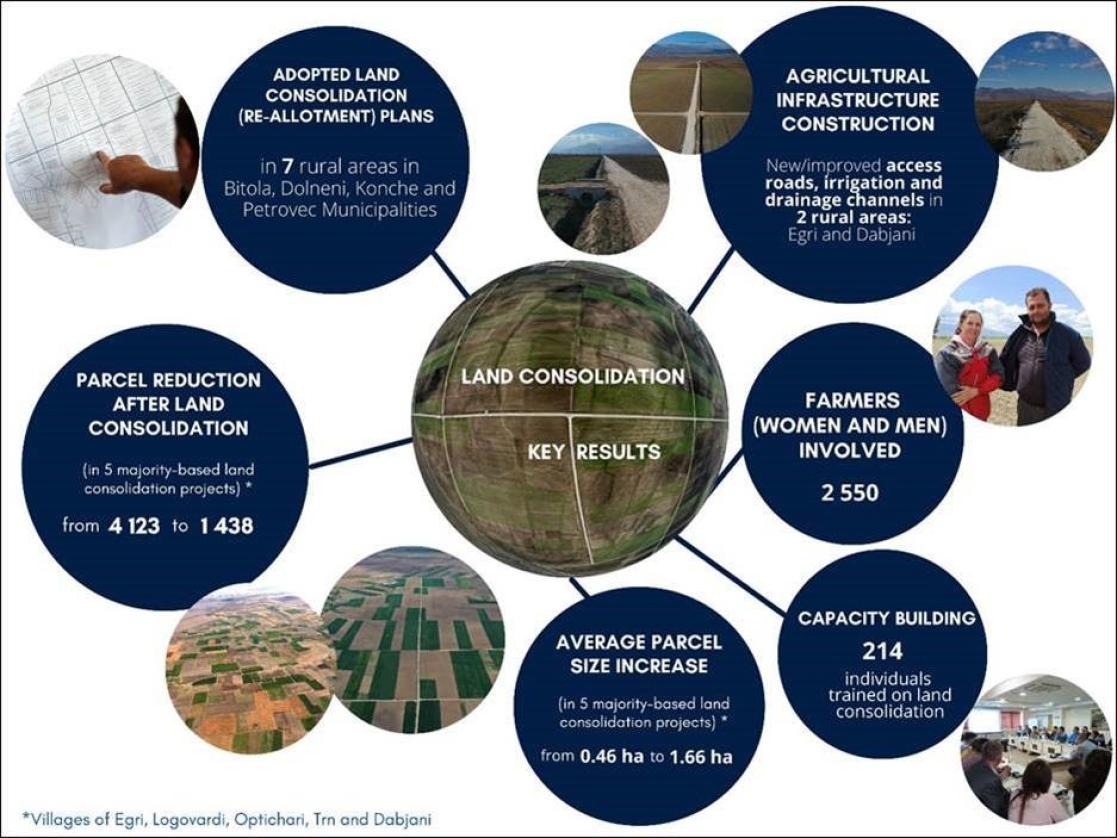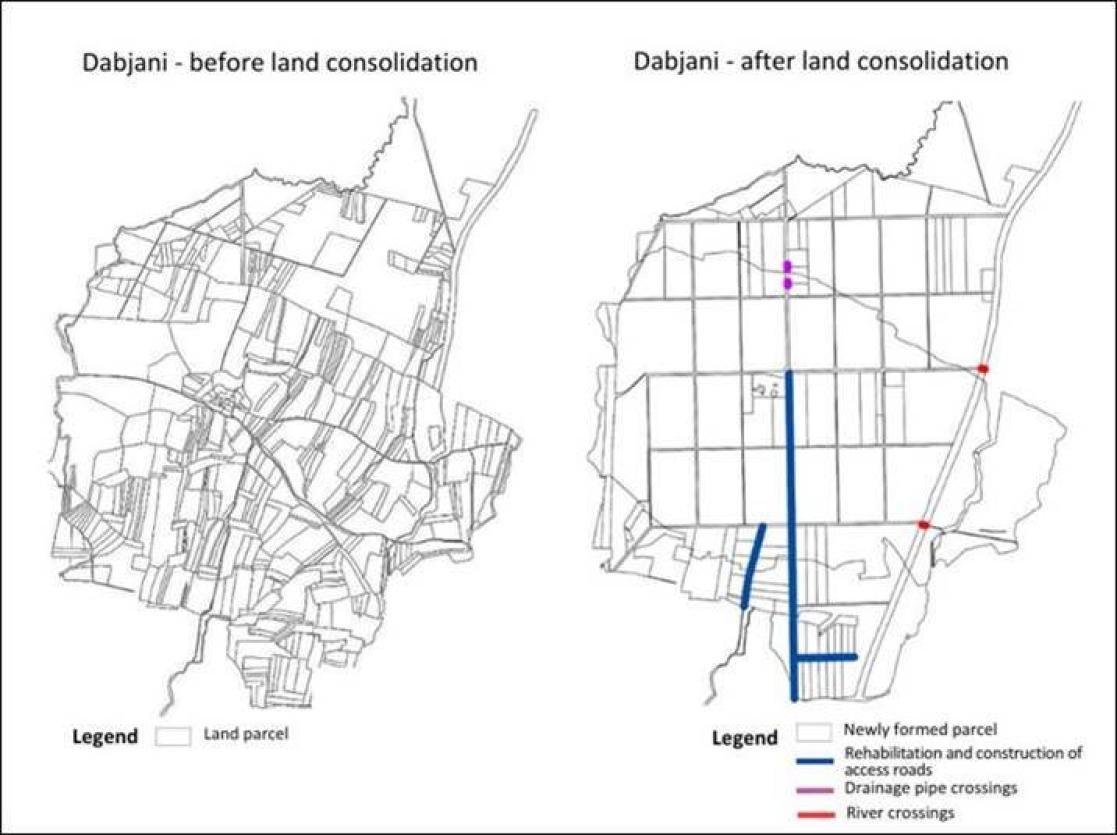Second phase of the EU-supported land consolidation process: greater parcels bring greater yields – and contribute to the sustainable use of farmland

Radica Gruevska and Martin Savevski inherited some 280 hectares of agricultural land in Dabjani. But the land was divided into 139 small parcels, around one hectare each, which made farming inefficient. With support from the EU and FAO, their land is now consolidated into 24 larger parcels, averaging around six hectares each. They expect this, together with the recently constructed access roads, to significantly improve their productivity and access to necessary resources. ‘This encourages us to continue our family's agricultural tradition’, they say.
North Macedonia has long faced challenges linked to fragmented agricultural land, small farms, and outdated agricultural infrastructure, with all this leading to low farm productivity, land abandonment and migration of young people from rural areas.
This is why the EU and FAO have been supporting the national authorities in implementing structural land reforms. From 2017 to 2022, the partners cooperated on the MAINLAND (Mainstreaming of the National Land Consolidation) project. The EU and FAO supported the Ministry of Agriculture, Forestry and Water Economy in making the National Land Consolidation Programme fully operational and in implementing the first round of land consolidation projects – with the following results:

FAO
Building on these results, in 2022 the EU launched the project ‘Enhancing Land Consolidation in North Macedonia’. Co-funded and implemented by FAO, this project has supported the Ministry of Agriculture’s efforts to improve the policy and legislative framework governing land consolidation in and to finalise land consolidation projects in the villages of Dabjani and Chiflik - along with construction of agricultural infrastructure.
Dabjani village in the Pelagonija region is so far the largest land consolidation project area in the country, covering 742 hectares of agricultural land. The land consolidation plan was approved by the participating landowners in January 2022. Before the consolidation, the Dabjani area comprised 602 small and irregular parcels. With the MAINLAND project, this number has been reduced to 127 larger, regularly shaped parcels, averaging 5.84 hectares—up from just 1.23 hectares. The ongoing project also rehabilitated existing access roads and constructed new ones, thus easing transport and accessibility to the fields for all 85 landowners.

FAO
Satki Miftaroski, head of the Inspectorate Department at the Municipality of Dolneni, to which Dabjani belongs, expects these improvements to boost farm productivity and their capacity to apply modern farming practices, which is vital for their competitiveness on the EU market. ‘This project is an example of how improving family farmers’ land structure and access to infrastructure can address land abandonment. This encourages younger generations to remain in rural areas, engage in farming and foster local development’, says Miftaroski.
In Chiflik village, Cheshinovo-Obleshevo Municipality, significant progress has been made with the drafting of a land re-allotment plan for an area of 156 hectares owned by 404 landowners. The process included direct meetings with all landowners to make sure that the plan works for everyone. Once formally approved, this EU-funded project will continue with upgrading of the access roads and constructing new ones, along with enhancing irrigation and drainage channels in the village.
Another project milestone is the completion (in June 2023) of the draft National Strategy for Agricultural Land Consolidation 2024-2034. This Strategy was developed through an inclusive process, involving key institutions, local communities and farmers, while taking on board the lessons learned from the implementation of the previous Land Consolidation Strategy (2012-2020). The document, now with the Ministry, aims to further advance land consolidation, making it a sustainable, long-term policy for agricultural development - which will also take into consideration goals such as climate change adaptation and mitigation, nature restoration, and environmental protection.





